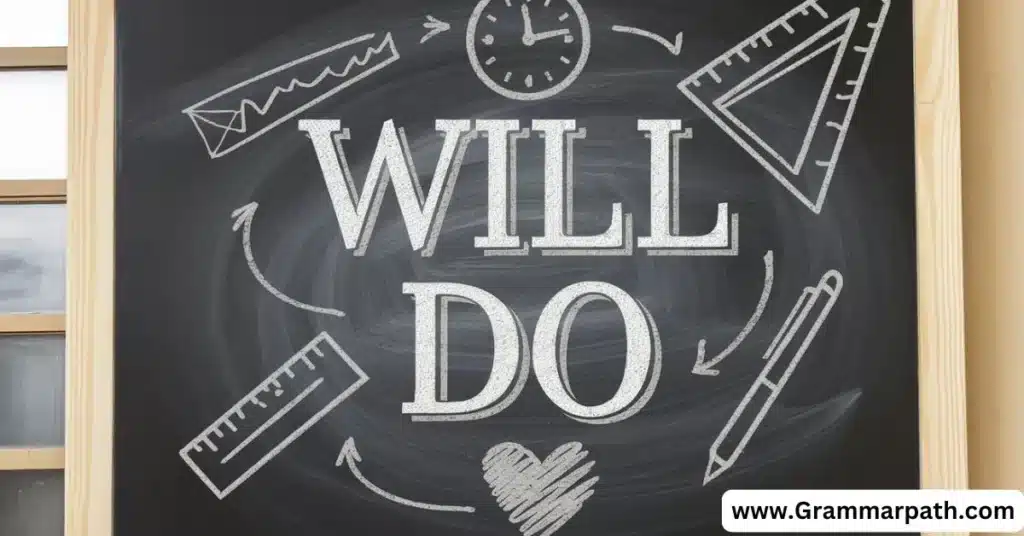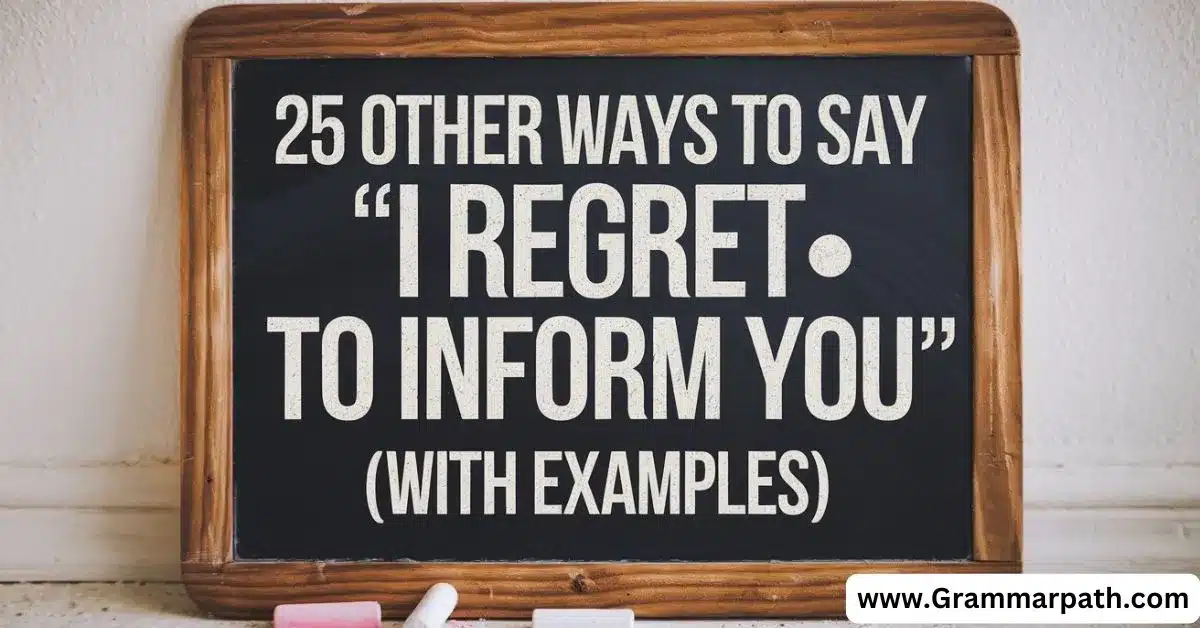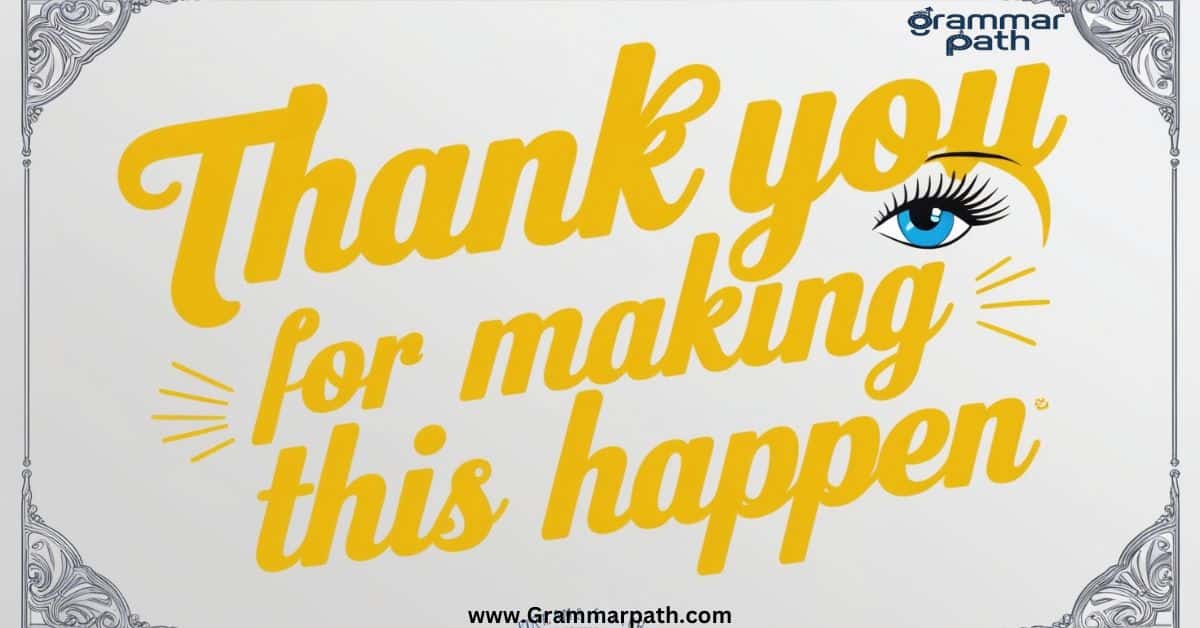
20 Other Ways to Say “I Will”
When you want to express “I Will” in different ways, it’s useful to have a variety of phrases for different situations. Whether in professional communication or casual conversation, switching up how you respond adds versatility to your language palette. For instance, in business communication, saying “Consider it done” conveys confidence and commitment.
In more relaxed communication, a phrase like “You got it” feels friendly and approachable. Using different variants allows you to adjust the tone, whether you’re in a formal setting or an informal tone. Having diverse alternatives on hand helps you fit the context, making your responses sound natural and engaging.
is it Professional to Say: “I Will”
Saying “I will” can be professional, but its suitability depends on the context. In formal settings, it’s better to use more refined expressions like “I will take care of it” or “Consider it done” to convey commitment with a polished tone.
However, in friendly professional settings, “I will” works as a direct and clear affirmation, showing readiness while keeping the communication straightforward.
What to Say Instead of “I Will”
- Will Do
- Consider It Done
- I’ll Handle It
- Absolutely
- Sure Thing
- You Got It
- Leave It to Me
- No Problem
- On It
- I’ll Take Care of It
- Leave It in My Hands
- You Can Count on Me
- I’m All Over It
- Understood
- Certainly
- Right Away
- Affirmative
- As You Wish
- I Got This
- Will Do Right Away
20 Professional Ways to Say “I Will”
Here are 20 professional ways to say “I will”:
1. “Will Do”

This is a straightforward and casual way to confirm that you will complete a task. It’s concise and works well in both personal and professional settings.
Scenario:
Email to a colleague:
“Hey Alex, I’ll review the report you sent over. Will do before the end of the day.”
2. “Consider It Done”
Using this phrase adds a touch of enthusiasm and confidence to your response. It assures the person that the task will be completed without any doubt.
Scenario:
Text message to a manager:
“Don’t worry, I’ll send the updated client list by noon. Consider it done.”
3. “I’ll Handle It”
This expression emphasizes taking charge and ownership of the task. It works well in formal settings when communicating with higher-ups.
Scenario:
Meeting reply:
“I’ll handle it, and you can expect the first draft on your desk by Thursday.”
4. “Absolutely”
This response is often used to show eagerness and positivity. It’s great for situations that call for a more friendly tone.
Scenario:
Phone call to a coworker:
“Absolutely, I’ll take care of arranging the conference room for the meeting.”
5. “Sure Thing”
This informal variant carries a casual and approachable tone, suitable for relaxed conversations.
Scenario:
Chat with a friend:
“Sure thing, I’ll pick up some snacks on my way to your place.”
6. “You Got It”

Adds a touch of personality and enthusiasm to the confirmation. It can be used in both informal and professional communication where a friendly tone is appropriate.
Scenario:
Slack message to a teammate:
“You need help with the slides? You got it, I’ll work on them after lunch.”
7. “Leave It to Me”
A confident way of taking responsibility for a task, especially in business communication where you want to show proactivity.
Scenario:
Email to a team leader:
“Leave it to me, I’ll get the presentation finalized before our next meeting.”
8. “No Problem”
Offers a relaxed way of agreeing to do something, often used in everyday dialogue.
Scenario:
Replying to a friend’s request:
“No problem, I’ll lend you the book after I’m done reading it.”
9. “On It”
This expression is great for immediate tasks, indicating that you’re already beginning to take action.
Scenario:
Quick response to a supervisor:
“On it! I’ll get those documents scanned and sent over ASAP.”
10. “I’ll Take Care of It”

Communicates not just willingness but also a sense of responsibility. It works well in both casual and formal settings.
Scenario:
Customer service response:
“I’ll take care of it right away and ensure the issue is resolved as soon as possible.”
11. “Leave It in My Hands”
Adds an element of assurance that you’re capable of handling the task effectively.
Scenario:
Conversation with a client:
“Leave it in my hands, I’ll ensure your request is fulfilled promptly.”
12. “You Can Count on Me”
Conveys reliability and a promise that the task will be accomplished.
Scenario:
Talking to a colleague who’s worried about a deadline:
“You can count on me to get this report done by Friday.”
13. “I’m All Over It”
A casual expression that communicates promptness and enthusiasm to get started.
Scenario:
Replying to a text about an urgent task:
“I’m all over it, I’ll have it done in no time.”
14. “Understood”
A concise and formal way to acknowledge a task or request, showing that you comprehend what’s needed.
Scenario:
Work email reply:
“Understood. I’ll proceed with the revisions as discussed.”
15. “Certainly”

Adds a polite and professional touch, suitable for workplace formality.
Scenario:
Customer service situation:
“Certainly, I’ll update your account details right away.”
16. “Right Away”
Shows urgency and eagerness to complete a task immediately.
Scenario:
Chat with a supervisor:
“Right away, I’ll send over the updated schedule.”
17. “Affirmative”
This term is mostly used in military or technical contexts but can add a touch of formality to a professional setting.
Scenario:
Project management meeting:
“Affirmative. I’ll lead the team to finalize the design phase.”
18. “As You Wish”
A polite and somewhat old-fashioned phrase that can add a touch of humor or charm when used in casual contexts.
Scenario:
Light-hearted email response:
“As you wish, I’ll have the reports ready by tomorrow morning.”
19. “I Got This”
This phrase adds a sense of confidence and reassurance in an informal tone.
Scenario:
Text to a friend:
“I got this, I’ll take care of the reservations for dinner.”
20. “Will Do Right Away”

Combines the simplicity of “will do” with a sense of urgency, suitable for time-sensitive tasks.
Scenario:
Emergency task at work:
“Will do right away, I’ll notify the IT team immediately.”
Pro Tips:
To effectively communicate your willingness and commitment, choose the phrase that fits the tone and context. For formal settings, opt for expressions like “I’ll handle it” or “Certainly,” which convey professionalism. In casual conversations, use phrases like “You got it” or “I’m on it” to keep the interaction relaxed and approachable. Selecting the right phrase not only confirms your agreement but also adds a touch of your personality to the conversation.
Conclusion
In conclusion, having varied ways to express “I Will” enhances your communication skills, whether in professional settings or casual conversations. It allows you to adjust your tone and demonstrate confidence, commitment, or friendliness as needed.
Choosing the right phrase can make a difference, adding a personal touch or formality to your response. By using different expressions, you show versatility and adapt to different situations with ease. Ultimately, these alternatives help you communicate more effectively and leave a positive impression on others, no matter the context.

Emily Olivia is an experienced writer specializing in grammar and English language topics. With a passion for clarity and precision, she shares valuable insights on synonyms, grammar rules, and writing tips to help readers enhance their language skills on Grammar Path.





